How And When To Prune Azaleas, According To Gardening Pros
Knowing when to prune an azalea and how to do it keeps shrubs healthy and promotes a manageable size. Here's how to prune this plant for beautiful blooms.
Amy Draiss
When to prune azaleas is a question from many gardeners. Azaleas are an enchanting source of lasting early-season color. Planted en masse, these shrubs leave a lasting impression on visitors to the garden and passers-by.
Their ease of growth and dependability make them an excellent candidate for experienced and novice gardeners, alike. Azalea plants do require some care to help maintain their perennial beauty.
Learning more about pruning azaleas is especially useful for promoting their blooms and caring for their foliage.
Do You Need To Prune Azaleas?
Like most perennial plants, azaleas benefit from seasonal pruning. Trimming or gently cutting back the plants will help to renew old or otherwise tired shrubs.
Regular pruning may also aid in the production of flowers, allowing each plant more energy dedicated to the production of buds.
When to Prune Azaleas
Determining when to trim azaleas depends greatly upon your own preferences. Azaleas are generally pruned in two ways: Thinning and heading.
Thinning can be done almost any time throughout the year with very little impact on the shrub’s growth or productivity.
Gardening tips, videos, info and more delivered right to your inbox!
Sign up for the Gardening Know How newsletter today and receive a free copy of our e-book "How to Grow Delicious Tomatoes".
Heading, a more severe type of pruning most commonly occurs sometime between late spring and early summer. This permits the azalea to finish blooming, and allows ample time for the development and maturation of new growth over the course of the summer season.
How to Prune Azaleas
There are two different methods for pruning azaleas that home gardeners need to know: thinning and heading.
Thinning
Thinning refers to the removal of entire azalea stems or branches. This pruning technique is ideal as a way to remove plant parts that have been damaged or have died back. Branches that are especially tall or leggy can also be trimmed in this way.
To thin azalea shrubs, simply select which branches to take from the plant, and carefully prune them back to the nearest stem or even to ground level. Azaleas can be thinned successfully at most any point throughout the season, though it’s best to do it just after flowering.
Heading
The heading process refers to the removal of smaller segments from each stem. Pruning in this manner is most frequently done to revitalize plants and encourage new growth. This technique can also be used to produce shrubs that appear fuller, and it is also essential to maintaining the desired size and overall shape of the shrub. Heading should always be done early in the season, preferably after azaleas have just finished blooming.
Frequently Asked Questions
Should You Deadhead Azalea Bushes?
Known for their immense blooms, you may wonder if your azalea can benefit from deadheading. Unlike other ornamental species, deadheading the shrub does very little to extend the plant’s bloom time. It is certainly acceptable to deadhead azaleas to keep flower beds looking tidy. However, most species are considered to be “self-cleaning,” since they drop their faded flowers freely.
How Late Can You Trim Azaleas?
Proper timing for trimming azaleas depends on the technique being used. Azalea shrubs can be thinned at any time. Experienced gardeners suggest heading the plants no later than mid-summer. This allows sufficient time for new growth to mature, helping it to overwinter without the threat of damage from cold temperatures.

Heather Rhoades founded Gardening Know How in 2007. She holds degrees from Cleveland State University and Northern Kentucky University. She is an avid gardener with a passion for community, and is a recipient of the Master Gardeners of Ohio Lifetime Achievement Award.
- Amy DraissDigital Community Manager
-
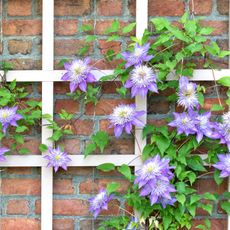 5 Fabulous Fast-Growing Vines – That Will Quickly Climb Any Arbor, Trellis, Or Fence
5 Fabulous Fast-Growing Vines – That Will Quickly Climb Any Arbor, Trellis, Or FenceThese fast growing vines are perfect for covering any eyesores in your yard or creating a living fence. They will provide great visual interest, as well.
By Amy Grant
-
 Best Indeterminate Tomatoes: Flavor-Packed Varieties For Fresh Harvests All Summer Long
Best Indeterminate Tomatoes: Flavor-Packed Varieties For Fresh Harvests All Summer LongIndeterminate tomatoes are vining varieties that fruit all season. Discover their distinctive features and how to choose the best type to grow in your garden.
By Bonnie L. Grant
-
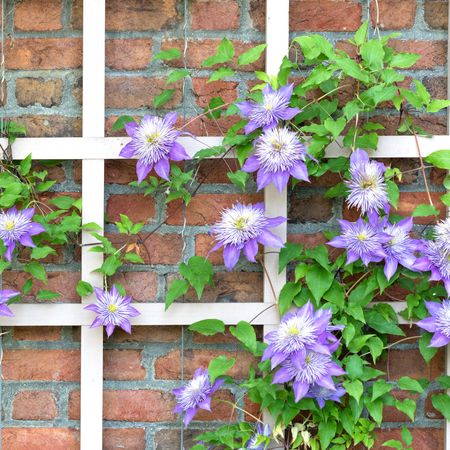 5 Fabulous Fast-Growing Vines – That Will Quickly Climb Any Arbor, Trellis, Or Fence
5 Fabulous Fast-Growing Vines – That Will Quickly Climb Any Arbor, Trellis, Or FenceThese fast growing vines are perfect for covering any eyesores in your yard or creating a living fence. They will provide great visual interest, as well.
By Amy Grant
-
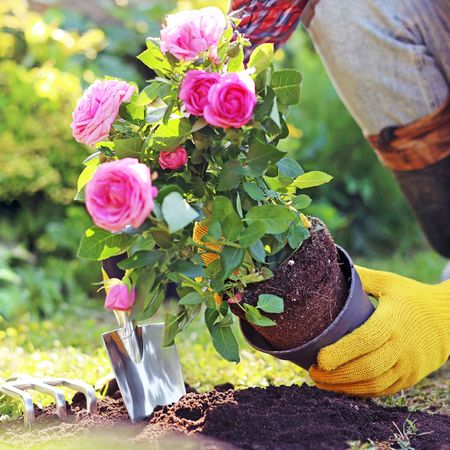 When To Plant Roses: The Best Time For Your Climate And Rose Type
When To Plant Roses: The Best Time For Your Climate And Rose TypePlant your roses at the right time and you will be rewarded with decades of glorious summer flowers – but get it wrong and you'll be crying over dead shrubs.
By Teo Spengler
-
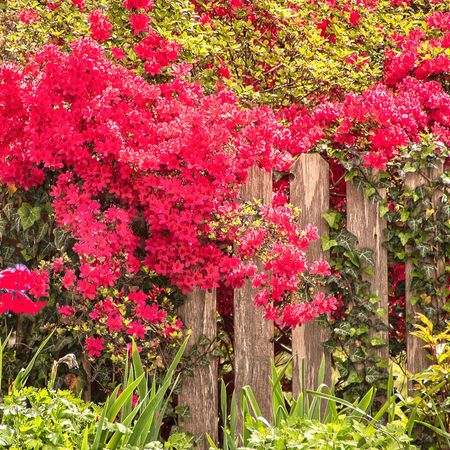 Spectacular Early Blooming Shrubs: 6 Sparkling Spring Flowering Bushes
Spectacular Early Blooming Shrubs: 6 Sparkling Spring Flowering BushesWant to kickstart your gardening year with dazzling spring flowering bushes for beds and borders? These unique early bloomers are sure to help you rise and shine!
By Teo Spengler
-
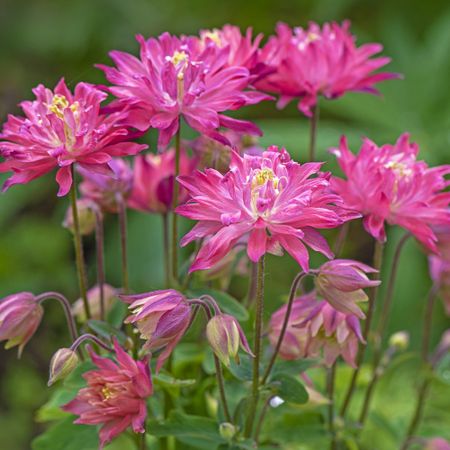 7 Shade-Loving Flowers To Start From Seed Now For A Stunning Summer Garden
7 Shade-Loving Flowers To Start From Seed Now For A Stunning Summer GardenTurn shady spots into vibrant new garden spaces with lovely and illuminating shade-loving flowers.
By Ellen Wells
-
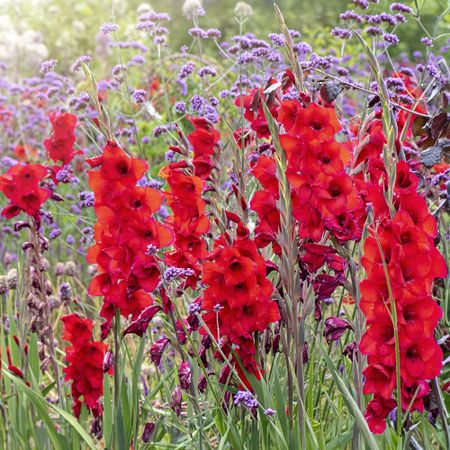 7 Summer-Blooming Bulbs To Plant In Early Spring: Don't Miss Months Of Glorious Flowers!
7 Summer-Blooming Bulbs To Plant In Early Spring: Don't Miss Months Of Glorious Flowers!Get a head start on stunning summer blooms with these easy-to-plant bulbs – act early and you will enjoy vibrant flowers that last for months on end.
By Mary Ellen Ellis
-
 Quick Fire Hydrangea – The Elegant, Easy-Care Shrub Every Gardener Needs In Their Landscape
Quick Fire Hydrangea – The Elegant, Easy-Care Shrub Every Gardener Needs In Their LandscapeIf you’re after an early flowering panicle hydrangea that offers plenty of floral variety, the Quick Fire hydrangea goes big on visual dynamics from early summer to fall
By Tonya Barnett
-
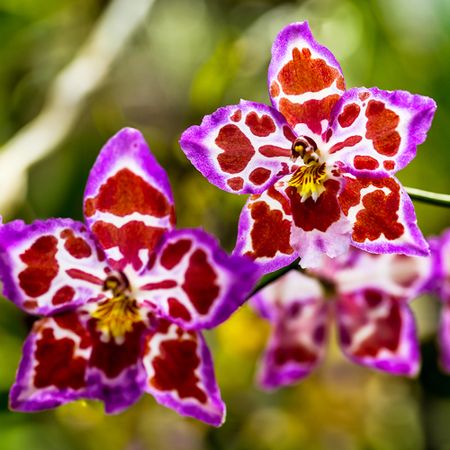 8 Rare Orchids That Make Stunning Houseplants – Some Are Surprisingly Easy To Grow
8 Rare Orchids That Make Stunning Houseplants – Some Are Surprisingly Easy To GrowDiscover unique orchids that will add exotic beauty to your home. Some make easygoing houseplants, while others offer a challenge for more seasoned growers.
By Melanie Griffiths
-
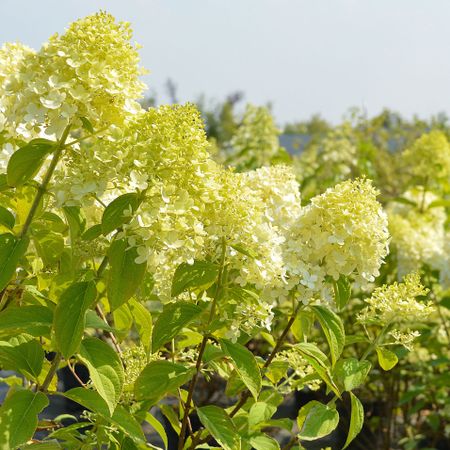 Grow Limelight Hydrangea Shrubs For Green Themed Displays And Brilliant Borders
Grow Limelight Hydrangea Shrubs For Green Themed Displays And Brilliant BordersIf you're a panicle hydrangea lover in search of flamboyant, long-lasting florals, knowing how to grow Limelight hydrangea shrubs will ensure gorgeous green blooms
By Mary Ellen Ellis

